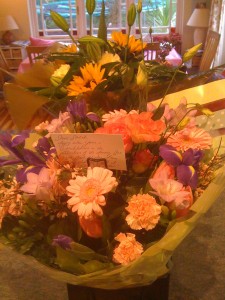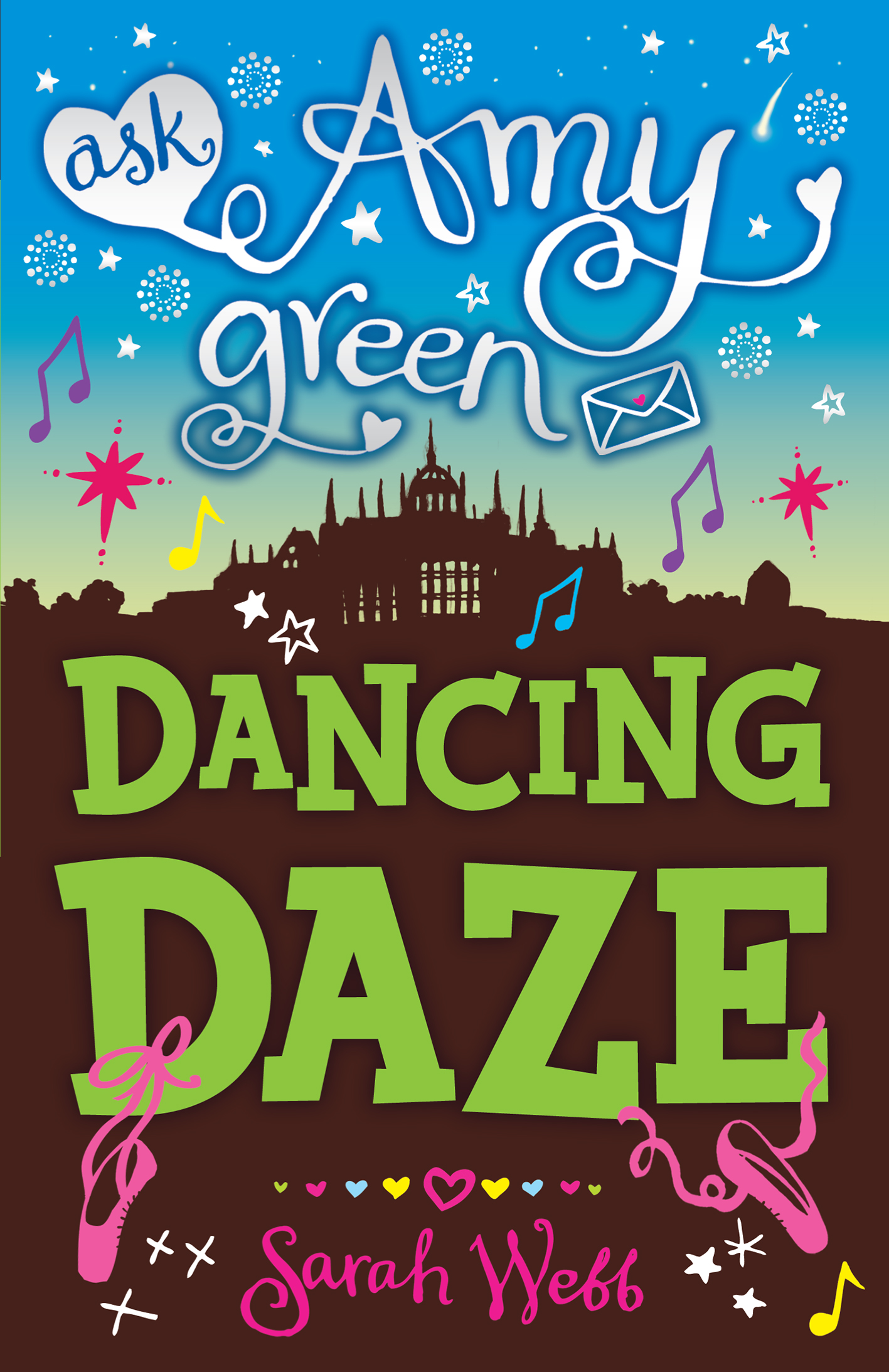Biography
Born in Dublin, Oisín McGann spent his childhood there and in Drogheda, County Louth. He studied at Ballyfermot Senior College and Dun Laoghaire School of Art and Design, and went on to work in illustration, design and film animation, later moving to London to work as an art director and copy writer in advertising.
He now lives back in Ireland and works full time as an author and illustrator. He has written and illustrated numerous books for all ages of reader, including the Mad Grandad series, The Forbidden Files series, and eight novels, including The Gods And Their Machines, Small-Minded Giants, and his steampunk trilogy, The Wildenstern Saga. His new novel for readers of 10 years and upwards, Rat Runners, has just been published.
Oisin, can you tell us about your latest book, Rat Runners, and where the idea came from?
The core idea that sparked the story was based on a very simple premise: we’re observed by surveillance cameras every day now, but what if there was a person standing there, staring at you instead? Then I took it further and thought: what if they had the means, not just to observe you, but to examine you in detail? That’s where the Safe-Guards came from. I was originally going to have it as a fantasy story, with these figures like you’d see in a Terry Gilliam film, with contraptions on their heads holding loads of lenses. But the more I thought about it, the more I wanted to bring it closer to home.
The Safe-Guards have sophisticated cameras and sensors that can study you with X-rays, thermal vision, check your identity with facial recognition, they can listen with highly sensitive mikes and use chemical analyzers to check out your smell. All of this technology is based on equipment that’s already in use.
Once I had this surveillance society, as an environment, run by an organization known as WatchWorld, it made sense to have the kids as experts at evading this surveillance – young professional criminals, but ones who work for some very serious villains. This triggered a whole load of ideas about the characters, what type of people they were, and the kind of mystery they’d become involved in solving. It all starts with a murder, then the search for a mysterious box, all while trying to avoid being watched by the system. The situation means that even just getting from place to place becomes a challenge.
How long did it take you to write?
From the point where I wrote the first line, I think it took a little under six months, which is about typical. I had a lot of other stuff going on, so it came together very well. I normally take between four and six months to write a novel.
How do you organise your writing day? For example, where do you write?
In an ideal situation, I’d work from late morning and into the evening. I have an office/studio where I work normally, but sometimes I’ll sit down at the kitchen table with the notebook, or pace around. I do a lot of pacing. But I have a very varied schedule, doing a lot of events, running courses and all the other bits and pieces you have to do when you’re self-employed. I rarely write for more then three or four hours in a day, but I plan things out pretty thoroughly, so by the time I start typing it out, I get straight to the point.
And at what time of the day are you at your writing best?
I think evening is the best time, but it’s a bit antisocial if you have a family. I can write any time when the house is quiet – which doesn’t seem to be that often these days!
Do you use a computer or write long hand?
I plan with my notebook, making copious notes, but once I start writing, I like to be at my desk, typing it straight in.
Do you edit as you go along? Or at the end of the first draft? Do you find rewriting difficult?
I do edit as I go. Whenever I sit down to write, I’ll read what I wrote last. I also make some changes after the first draft, but then normally I hand it round to friends and family who make suggestions before I send it to my agent. I don’t find rewriting difficult – it can be very satisfying to tighten up the story, but at some point you have to choose to finish.
Do you use the internet for research? Do you find it useful? What other research tips can you give writers?
I do absolutely use the web for research, it’s fantastic, but it can also be treacherous. For anything important or anything I’m in doubt about, I’d make sure I’m checking more than one source – three or four is best. For the legends I’ve rewritten, I found at least seven or eight versions of each before getting started.
As far as the use of research goes, it’s vital that you sound like you know what you’re talking about, but never put in more information than the story demands. A lot of writers fall in love with their research, assuming that if they love this subject then their readers will too. The information, the detail, should carry the story forward, not weigh it down with excessive detail. You can also end up doing far more reading than you do writing, which is an excellent way to avoid finishing your book. The other hazard with research, is that you focus on the things that interest you, but neglect the things that don’t. It’s something I’m always trying to pull myself up on.
Are there any books or websites you would particularly recommend for writers?
Anybody who wants to get published should get themselves a copy of The Writers & Artists’ Yearbook. It comes out every year. Children’s Books Ireland also have a section called cb-info on their site (http://www.childrensbooksireland.ie/resources/cbinfo/), which is really useful generally, but particularly for the Irish market. Writing.ie has a lot of good stuff too.
How did you get your first book published? Was it difficult?
It didn’t happen quite the way I planned! I’d been pitching my first novel, The Harvest Tide Project to agents in the UK when I lived in London, but then I moved back to Ireland and started looking for work as an illustrator. The O’Brien Press liked one of the styles I worked in, wanting to use it in their Flyers range, but they didn’t have any stories at that point. So I pitched three stories to them, and they took two – the first two Mad Grandad books. Then they asked if I’d ever considered writing a novel. By that time, I’d finished The Gods and Their Machines, so I slapped the manuscripts for that and Harvest Tide on the table. They contracted for those and a sequel to The Harvest Tide Project, which became Under Fragile Stone.
Have you always written for children? Have you ever written anything for adults?
I consider all my books suitable for everyone, and a lot of adults read my YA stuff. I think that’s the definition of Young Adult; it’s something both young and adult readers can enjoy. I’ve written one other novel that’s aimed at older teenage and above, but it’s a step away from my normal stuff, and I’ve never pitched it to anyone. Not yet anyway.
Do you have an agent? And if so, how did you find her?
Having pitched to a number of agents early on, when I was living in London, I actually got published with O’Brien without one. But when I wanted to pitch my books in the UK, I knew I needed an agent. At that time, Eoin Colfer was probably the biggest name in children’s books in the UK after JK Rowling. He’d given me a great endorsement for The Gods and Their Machines, so I thought, why settle for less than the best? I sent her copies of my books with an introduction letter and the manuscript for Small-Minded Giants, telling her what I planned for the future. I met her when she came to Dublin not long after that and we signed up together.
Oisin, you have three children. How do you juggle being a dad with being a writer? Do you find it difficult?
It is very difficult at times, though it was harder when the girls were first born (they’re two and four, and my stepson is now twelve), especially when we moved into a new house that had to be renovated just weeks after our second daughter was born! Apart from all the practical stuff, having kids really increases the pressure to make a decent living, which increases the stress you already feel at being a parent of young kids (Am I doing this right? Oh, my God, who put me in charge of the lives of three little human beings?!). They’re great craic, but they’re also exhausting! It takes so much out of you, but I laugh more since I had children. You’re also tempted to write down everything they say, because you think it’s all brilliant.
What type of books do you like to read? What books are on your bedside table at the moment? Do you have a favourite book?
I don’t have a favourite book – it’s hard to even choose some of my favourites. As for what type of books I like to read, I’ll try anything really. I’ve just finished Ursula le Guin’s second Earthsea book, The Tombs of Atuan (I read the first one years ago), and I’ll probably go on to read the third one now. I’ve recently got into Lee Child’s books, they’re cracking page-turners. Other stories I’ve thoroughly enjoyed recently would include Mailer’s The Naked and the Dead (that one took me ages!) and Scott Westerfeld’s Leviathan trilogy. At different points in my life, I’ve been into crime, horror, fantasy and sci-fi, Westerns, war stories, historical fiction . . . almost everything. Romance, not so much, but I’d never rule it out.
What is the best thing about being a writer?
Doing what you love. I always look forward to work when I get up in the morning. Even after all these years, work still has the potential to thrill me.
The worst?
The financial insecurity can be tough, particularly when you make the leap into full-time writing, or when you go through quiet periods, as the majority of writers do. It’s a very wayward career, with no clear path laid out for you, so you have to be very disciplined, and as most self-employed people know, you can be your own worst boss. I’m not good at taking holidays, but my wife, Maedhbh, is good at forcing me. The promotional work can really take it out of you as well, but it can be a real buzz too.
And finally, do you have any advice or tips for writers?
Keep at it and never quit. Learn the trade-skills and get to know the industry, but write what you genuinely enjoy writing, the kind of thing you’d take with you on holiday to read, so you’ll write it for free until you get paid to do it. Don’t write to impress. Write for fun first – all the rest will come in time.
Thank you, Oisin, for sharing your writing life with us.
Find out more about Oisin here:
Website: www.oisinmcgann.com
Blog: http://www.oisinmcgann.com/blog/
Facebook: http://www.facebook.com/oisin.mcgann.7
Twitter: @OisinMcGann













![IMG_1863[1]](https://images.squarespace-cdn.com/content/v1/58973315e4fcb5808a5b7d9e/1486377446879-G0YXOL4ISVFTFRI6G0L5/IMG_18631-e1350983013257.jpg)
![IMG_1862[1]](https://images.squarespace-cdn.com/content/v1/58973315e4fcb5808a5b7d9e/1486377446719-90MQZ81MCX0QD2O6KDTD/IMG_18621.jpg)






![IMG_1607[1]](https://images.squarespace-cdn.com/content/v1/58973315e4fcb5808a5b7d9e/1486377432672-5I8S3TM8EXMTAP4SD6FF/IMG_16071-e1340719607172-150x150.jpg)
![1387486_com_sipod[1]](https://images.squarespace-cdn.com/content/v1/58973315e4fcb5808a5b7d9e/1486377432285-SSP5M1XOTP43YXNOUCHU/1387486_com_sipod1-150x150.png)